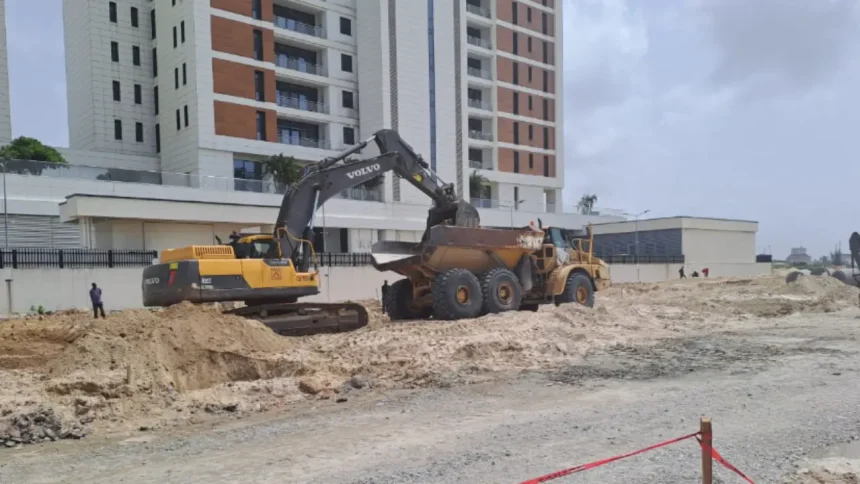The controversy surrounding the Lagos-Calabar coastal highway project poses a significant threat to President Bola Tinubu’s efforts to attract Foreign Direct Investment (FDI) into Nigeria. While the President has touted a remarkable $30 billion in FDI, the handling of this infrastructure project risks undermining investor confidence and potentially deterring future investments, particularly from the Nigerian diaspora, who have been specifically encouraged to contribute to the nation’s economic growth. This situation highlights the delicate balance between development imperatives and the protection of existing investments, a balance that the government seemingly struggles to maintain in this instance.
The core of the issue lies in the diversion of the highway from its originally gazetted alignment. The Okun Ajah community, located in the Eti Osa Local Government Area of Lagos State, and particularly Nigerians living abroad, invested heavily in real estate in the area, explicitly avoiding the designated right-of-way for the coastal road. The government’s decision to reroute the highway through this community, thereby necessitating the demolition of properties, has not only resulted in substantial financial losses for these investors but also eroded their trust in the government’s commitment to protecting their investments. This breach of trust carries far-reaching implications, potentially discouraging future diaspora investment, a key component of the President’s economic agenda.
The CEO of Winhomes Global Services Limited, Stella Okengwu, has voiced concerns about the negative impact this controversy could have on the overall FDI drive. She emphasizes the irony of the situation, where Nigerians in the diaspora, responding to the President’s call for investment, have seen their contributions jeopardized by the very government that solicited them. This incident sends a chilling message to potential investors, both domestic and foreign, about the security of their investments in Nigeria. The arbitrary nature of the road diversion raises serious questions about the stability and predictability of the investment environment, crucial factors for attracting and retaining foreign capital.
The Okun Ajah Community Development Association, representing the affected residents and investors, has appealed to the federal government to adhere to the original 2006 gazetted alignment for the coastal highway. These appeals, however, have been ignored, and the construction continues along the diverted route, further exacerbating the situation and deepening the sense of injustice felt by the community. This disregard for community concerns and the apparent lack of transparency surrounding the decision-making process only serve to reinforce the perception of an unstable and unpredictable investment climate.
The implications of this controversy extend beyond the immediate financial losses suffered by the affected investors. It strikes at the heart of the government’s credibility and its ability to foster a welcoming environment for FDI. The arbitrary nature of the road diversion and the perceived disregard for existing investments send a negative signal to potential investors, suggesting that their investments may not be secure in Nigeria. This could deter foreign companies from committing capital to projects in the country, hindering economic growth and development.
Ultimately, the Lagos-Calabar coastal highway controversy serves as a cautionary tale. While infrastructure development is essential for economic progress, it must be pursued in a manner that respects existing investments and fosters a stable and predictable investment climate. The government’s handling of this situation risks undermining the President’s FDI drive and sends a troubling message to potential investors about the security of their investments in Nigeria. Addressing this controversy and ensuring that future infrastructure projects are implemented with greater transparency and respect for existing investments will be crucial for restoring investor confidence and achieving the government’s economic development goals.


